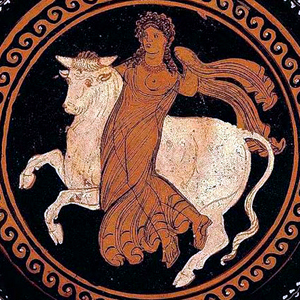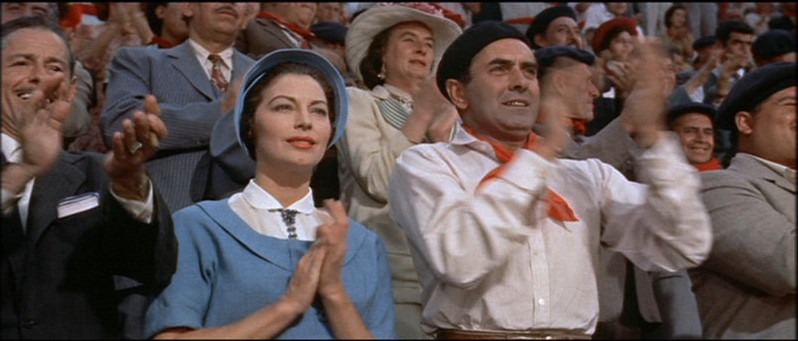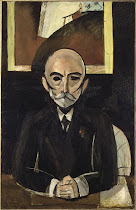Donation
for Raquel Zepeda (as I wrote this I pictured you enjoying it)
"The rich man put a million dollars into the box. One million dollars. Then he went home where he had more millions of dollars. Then a poor child came to the donations box. His clothes were torn. His face and hands were dirty with soot-"
"What's soot?" asked Olivia.
"It's dirt."
"It's from ashes." Riley corrected.
"It's a type of dirt from ashes." said the priest. "But the point is the child only had one quarter. That's it. And the poor child donated that quarter to the church. And, in the eyes of God, it was a greater donation than the one million dollars that the rich man gave."
"Why?"
"Yeah, why?"
"Did God see that it was a special old quarter that was worth a lot?"
"No children, it was a regular quarter. But, you see, the rich man has more millions at home but the child gave everything that he had."
"What are his fiscal responsibilities?"
"Sorry?"
"It means: what does the child need to spend his money on?"
"I know that. I'm sorry, you're Riley aren't you?"
"Consider that the child's quarter is one hundred percent expendable income because his parents provide food and shelter-"
"The child has no parents," the priest snapped, immediately feeling guilty, "he lived on the streets, alone."
"Where did he get the soot?" Olivia inquired.
"From the dirty streets." the priest collected himself.
"Was there a fire on the street?"
"Where did his clothes come from?"
"Children, let us not lose the meaning of this story. It is about sacrifice-"
"How's he going to eat?" Meredith said. Her crew audibly agreed.
"The rich man should have given the kid the money. Forget the donations box." Justin's suggestion caught the attention of Judith. He was smart and good in arts and crafts. Perhaps they could get married at recess.
"Now wait, children-"
"What if he kept the quarter and put his clothes in the box? Then God would love him and he could eat, right?" said thoughtful Claire.
"After he put the money in, God would make sure he could eat." Heavy Charles stated definitively.
"No," said Riley. "God is not a vending machine."
"That's right, Riley." said the priest.
"But Father, if given a choice between the rich man's million and the child's quarter, which would you choose to accept? You could do more good through the church with the million. A quarter wouldn't even buy a new bulb for the overhead projector." Father Eddie looked at the church's old pathetic projector. What he wouldn't give for one of those new LED jobs they had over at St. Anne's. The childen's questions brought him back to the service. Always the questions.
"Would God be mad if he stole the quarter?"
"Yes. We talked about that last session." Father Eddie pointed to the Commandment count on the wall. They were up to seven.
"I was sick." Kyla then mimed throwing up, much to the dismay of Petra.
"Father," big-eyed Dewey Dawson said in his quiet voice, "is it stealing if the child found the quarter on the ground but didn't yell: did anyone drop a quarter?" all the children leaned in for the answer. Father Eddie felt tired.
"If you found five dollars do you have to call the police?"
"Yeah, how much can you find and be allowed to keep?"
"Is there a correlation between atheism and wealth?" that had caught Father Eddie off guard. He was asked that, years ago, during his studies.
"Excuse me?"
"Correlation. It means a relationship-"
"I know what it means," this Riley child knew many words past her grade, "what made you think to ask?"
"Well, Charles raised a good point, the child might think donating the quarter will bring him food; in which case his faith in God is false. Thus, only rich people can truly believe in God because they're not preoccupied with the struggle to survive. But then I thought, perhaps rich people were less likely to have faith in God because they focus on buying temporary things and forget their eternal souls." The class stared at the Father Eddie. They rarely understood Riley but they could feel the tension in the atmosphere.
"Which do you think, Riley?"
"I think of myself as that child and I want to give everything that I have. But I also want to use my money to care for others on Earth and buy them gifts and food. I love my mom and I hope God knows that I'm trying to show my love for him by loving my mom. I bought her paint for Christmas because I know she likes to paint but she has no time and now my money-" She paused and began to choke up. No one knew Riley's mom but they knew that she started crying whenever she talked about her. The class continued to safely stare at her because her gaze was pinned to the eyes of Father Eddie. "I want to surrender myself to God and study to be a priest but I don't know. Sometimes I don't know if the church is the best way to serve God." Riley's voice held as tracks of tears ran down her cheeks. Her words had traveled far into the priest's memory and recalled a faint echo. Father Eddie's eyes were glazed in quiet crying. Suddenly, he didn't want to be here teaching kids about sacrifice and giving quarters. He wanted to be robbing banks. Robbing banks and donating the money to the church. The world was crazy, bankers collected massive profits while his church couldn't even project the words to "Silent Night" for the Christmas service. He pictured himself with a bag of money, shooting his gun in the air and riding on the sidebar of a car from the 1920s. But modern banking and theft were digital and he was hopelessly lost in the labyrinthine computer world. St. Anne's was still mad at him for playing with their LED projector and changing the default resolution or some such nonsense. He looked at the children's faces. They had been sitting there silently, waiting for him, for guidance.
"Wait," said Justin. "Riley, you can't be a priest, you're a girl." The class burst into laughter like a fully trained choir. Sometimes, Justin said the right thing at the right time. Some tears rolled down the priest's face. Perhaps it was seeing an adult cry or perhaps Justin's comment had been that funny but all of the children began to cry as they laughed themselves to an exhausting, sniffling aftermath.
"Riley," Father Eddie said, disguising the tremble in his voice, "with people like you, I never worry about God's love on Earth." Riley smiled and the bell rang.
The entire class of Ms. Pemberton's Grade Twos would reach adulthood. Most would say that they "believed in God" but their reasoning varied. Some would argue that the human eye was so complex it meant it had been designed. Others believed there was something out there but unsure if they called it 'God'. Still others, would point to a flower, a tiger, or a natural disaster as their proof.
 63%
63%















